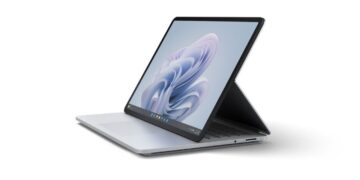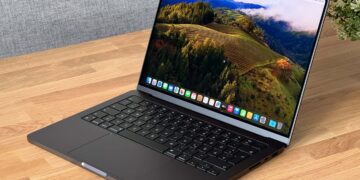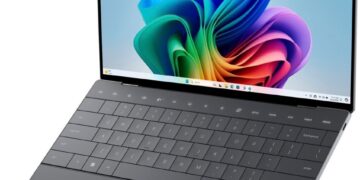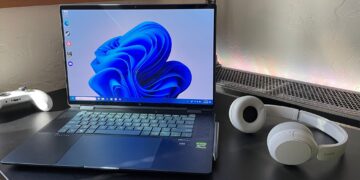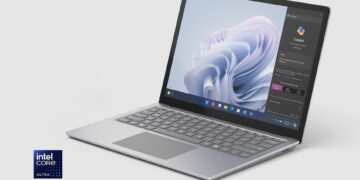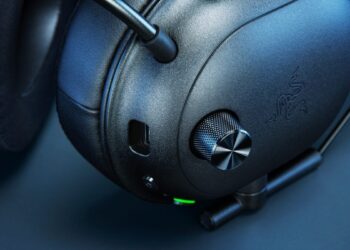The future of wireless connectivity is no longer a distant promise, with Wi-Fi 7 finally arriving in homes. ASUS’s ZenWiFi BD4 mesh system aims to deliver this next-generation speed and reliability without the early adopter price premium. It’s a compelling proposition for anyone feeling the bottleneck of their current network.
The arrival of Wi-Fi 7 brings with it a host of new technologies, and the ZenWiFi BD4 cleverly implements the most crucial ones to hit an aggressive price point. At its core, this is a dual-band BE7200 mesh system. This dual-band approach is the key to its value, but also its primary compromise. Unlike pricier tri-band or quad-band systems, the BD4 combines the 5 GHz and 6 GHz bands for both client devices and wireless backhaul—the communication between the mesh nodes themselves. In real-world testing with Wi-Fi 7 clients, performance is undeniably impressive, with Multi-Link Operation (MLO) seamlessly combining bands for blistering speeds and remarkably low latency that gamers and remote workers will appreciate. However, in a fully wireless setup where nodes are far apart, that shared backhaul can become a bottleneck, reducing the speeds delivered by the satellite node. For optimal performance, connecting the nodes via Ethernet (a wired backhaul) is the way to go, a task made easy by the inclusion of a 2.5 Gbps WAN port and three 2.5 Gbps LAN ports on each unit.

ASUS has settled into a consistent and effective design language with its ZenWiFi line, and the BD4 is no exception. The units are compact, minimalist white towers with a subtle texture and the signature concentric circle pattern on top. They are designed to blend into the background of a modern home rather than scream for attention, a choice most users will welcome. Build quality feels solid despite the all-plastic construction, and ventilation seems more than adequate to keep the powerful internals cool under load. The port layout on the back is clean and accessible, a small detail that simplifies setup.
Where the ZenWiFi BD4 truly shines is in the software and feature set, an area where ASUS consistently outpaces its competition. Setup is a breeze using the intuitive ASUS Router mobile app, which guides you through the process in minutes. Once running, you gain access to the AiMesh 2.0 system for seamless network management and AiProtection Pro, a lifetime-free suite of commercial-grade security tools powered by Trend Micro. This includes malicious site blocking, intrusion prevention, and infected device quarantine, features that often require a subscription with other brands. The parental controls are robust and granular, and for advanced users, the web interface offers a staggering level of control over every conceivable network setting.
Ultimately, the ZenWiFi BD4 represents a strategic entry into the Wi-Fi 7 market. It’s not the fastest, most feature-packed mesh system money can buy, but it’s not trying to be. Instead, it offers a tangible and significant performance upgrade over any Wi-Fi 6 or 6E system for a price that is far more palatable than the top-tier flagships. Its primary weakness—the dual-band architecture—can be entirely mitigated with a wired backhaul. For homeowners who can run an Ethernet cable between nodes or have a smaller space where wireless backhaul congestion is less of an issue, the BD4 is an outstanding value. It’s the ideal Wi-Fi 7 starting point for tech enthusiasts and gamers who want to future-proof their network and unlock next-generation performance for their new devices without breaking the bank.

Where to Buy:


ZenWiFi BD4 Wi-Fi 7 Quick Summary
Key Scores:
-
Value:
75% -
Design:
92% -
Performance:
95% -
Quality:
90% -
Popularity:
70%
Top Pros
- ✅ Delivers next-generation Wi-Fi 7 speeds at an accessible price point.
- ✅ Includes robust AiProtection Pro security and parental controls for free.
- ✅ Multi-gig 2.5 Gbps ports prevent common wired network bottlenecks.
- …
Key Cons
- ❌ Its dual-band architecture limits dedicated wireless backhaul performance.
- ❌ Unlocking full potential requires expensive Wi-Fi 7 client devices.
- ❌ It omits the 10 Gbps ports found on premium Wi-Fi 7 models.

 Tech Essentials
Tech Essentials